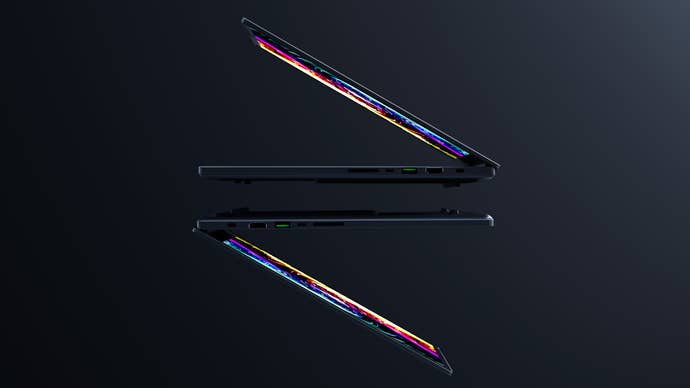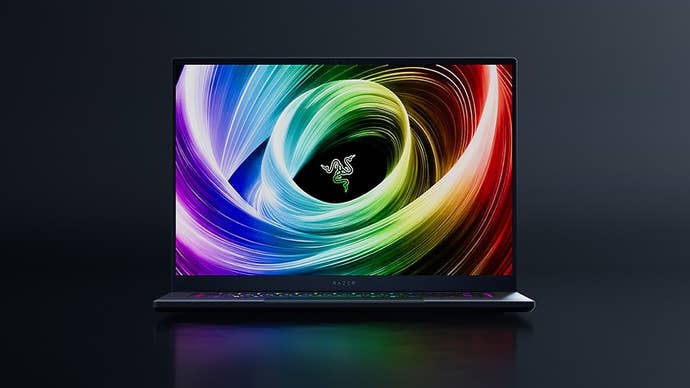As US tariffs hit, PC hardware is joining the Switch 2 in pre-order delay limbo
The first casualty of trade war is the Razer Blade 16
Stock markets tanked and gaming laptops went into hiding this morning as US President Donald Trump’s globe-spanning tariffs came into effect. Based on nonsense maths, these heavy taxes on imported goods are already sowing havoc within the gaming hardware industry, leaving manufacturers – whose production operations are commonly based in China and Taiwan – to scramble together a plan. Most headlines have focused on the upcoming Nintendo Switch 2’s US pre-orders being delayed as a result, but PC gear is very much following suit, with Razer pausing direct sales for its new Blade 16 and Blade 18 laptops.
As spotted by The Verge, Razer’s pre-order pages for bothlaptops have been replaced by a "Notify Me" button, and it’s the same story for the Razer Adjustable Laptop Stand, which was only announced yesterday. All three products are still available on Razer’s UK site at the time of writing.
Razer haven’t confirmed this un-selling as a direct result of the taxes, instead taking a no-comment approach. Yet the timing does stink a little of the fact that China and Taiwan, where Razer has its factories, are now subject to levies of 32% and 104% respectively. And again, they wouldn’t be the first. Besides the Switch 2, repairable laptop maker Framework have "temporarily" paused sales in the US as well.
“Other consumer goods makers have performed the same calculations and taken the same actions,” Framework claimed in a Xeet, “though most have not been open about it.”

The basic dilemma faced by hardware makers, or at least the majority who need to import parts or whole products to the US, is whether to tank the extra costs (in order to keep their wares at pre-tariff prices), or to pass those costs onto consumers, resulting in potentially painful hikes. Reuters report that Micron, who produce memory chips for a range of consumer SSDs, RAM modules, and laptops, have already chosen the latter for some of their products.
If these tariffs stay in place, it could therefore end up being a rough few years for PC owners in need of upgrades, with even American firms like Nvidia relying on Taiwanese semiconductors. The Entertainment Software Association (ESA), a US-based trade association the represents Microsoft, Sony, Nintendo, EA, Epic, and other gaming giants, have warned that the policy is “going to have a real and detrimental impact on the video game industry," and previously wrote an open letter to the US government decrying its risks.
One argument in defence of these tariffs, sparking from the last square inch of US lawmaker brain matter that isn’t clogged up with Cheetos dust, is that they’ll encourage locally-based companies to move their production stateside, creating new jobs aplenty. This, of course, fails to account for the lengthy timespan of building new factories, their enormous material cost, or the talent crunch that would occur when loads of big orgs suddenly need to hire specialist technical staff simultaneously. All of which would likely result in... higher prices for the consumer.
I like to think that us PC types are a hardy folk that have endured plenty of money troubles before, including the great graphics card gouging of 2020 or more recent upticks in SSD prices. Still, those were caused (at least largely in part) by properly Biblical catastrophes like plague and floods. This is, just, stupid.

